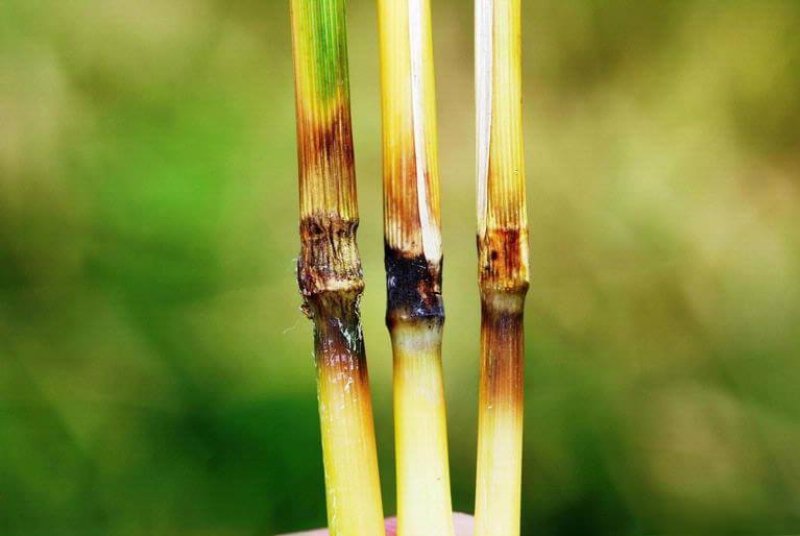Scientists have found a way to stop the spread of rice blast, a fungus that destroys up to 30% of the world’s rice crop each year.
An international team led by the University of Exeter showed that chemical genetic inhibition of a single protein in the fungus stops it spreading inside a rice leaf – leaving it trapped within a single plant cell.
The finding is a breakthrough in terms of understanding rice blast, a disease that is hugely important in terms of global food security.
However, the scientists caution that this is a “fundamental” discovery – not a cure that can yet be applied outside the laboratory.
The research revealed how the fungus can manipulate and then squeeze through natural channels (called plasmodesmata) that exist between plant cells.
…
Rice blast threatens global food security, destroying enough rice each year to feed 60 million people.
It spreads within rice plants by invasive hyphae (branching filaments) which break through from cell to cell.
In their bid to understand this process, the researchers used chemical genetics to mutate a signalling protein to make it susceptible to a specific drug.
The protein, PMK1, is responsible for suppressing the rice’s immunity and allowing the fungus to squeeze through pit fields – so, by inhibiting it, the researchers were able to trap the fungus within a cell.
Read full, original post: Breakthrough in battle against rice blast































